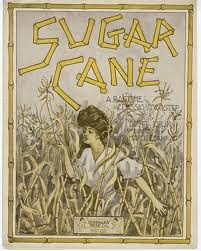by Jonell Galloway
A recent Huffington Post article revealed that in 1980, Donald Rumsfeld was head of G.D. Searle, as well as part of Ronald Reagan’s transition team, along with Dr. Arthur Hull Hayes, Jr., later to be named head of the FDA. Hayes, not having experience in food additives, allowed Searle to reapply for approval of the use of aspertame, which had previously been banned because “it might induce brain tumors.”
Natural sugar vs. artificial

According to World Radio Switzerand, “synthetic sweeteners — and particularly aspartame — are today at the heart of a long-bubbling controversy. Are they really harmless sugar substitutes?”
Recent studies question the claim that they are harmless and help in fight against weight gain. A study published in the Journal of Toxicology and Environmental Health says aspertame reduces the amount of good bacteria in the intestines by up to fifty percent, increases the pH level in the intestines, and actually contributes to increases in body weight because it is absorbed by fat cells.
“H.J. Roberts, M.D., coined the term ‘aspartame disease’ in a book filled with over 1,000 pages of information about the negative health consequences of ingesting aspartame,” says MedicineNet, which also lists the worrying side effects of other artificial sweeteners.
In Switzerland, research is being carried out on stevia, a plant from South America that is three times sweeter than sugar and contains zero calories.
But in the end, what does it all change for those of us who try to eat real food? Not a lot. Products dreamed up by corporations, that do not come to our plates in their natural form, will always run the risk of being bad for our health. Agribusiness is out to make a living, like the rest of us, but unfortunately, unlike individuals, will never have a soul.
People who adhere to a real food/Slow Food philosophy probably don’t eat artificial sugar in the first place.

- Antique apples: Bellefleur Jaune,
Aigle, Switzerland
I have never found reconstituted or artificial anything to taste good; if I’m going to eat butter, I simply eat butter, the best I can get my hands on, in very small quantities. And so it goes with sugar, and most all extra-fresh, local vegetables and fruit. I was practically a babe in arms when I discovered that a tomato right off the vine is actually sweet, not acidic. Learning to taste the natural sweetness, saltiness, bitterness, sourness and acidity in food is part of the whole eating experience. It is a return to simplicity, a turning away from artificial flavors produced in factories, designed to addict us so we’ll buy more.
I eat with the seasons so as to take advantage of produce when it is at its best and also at its cheapest. That reminds me, I think I’ll go get my sugar fix: a BelleFleur Jeune, Louis XIV’s favorite apple, brought back to life by the Cheseaux family in Aigle.
|
|




















